Son Seals
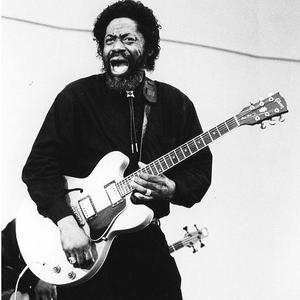
- Genre:
- Blues
- Meta styles:
- Chicago Blues, Early Acoustic Blues, Modern Electric Blues
- Styles:
- Electric Chicago Blues, Modern Electric Blues, Modern Electric Chicago Blues, Regional Blues
Frank "Son" Seals (August 13, 1942-December 20, 2004) was an American blues guitarist and singer. He was born in 1942 in Osceola, Arkansas where his father, Jim "Son" Seals, owned a small club. He began performing professionally by the age of 13, first as a drummer and later as a guitarist. In 1959, he formed his own band which performed locally and he also toured with Albert King.[1] In 1971, he moved to Chicago.
He was born in 1942 in Osceola, Arkansas where his father, Jim "Son" Seals, owned a small club. He began performing professionally by the age of 13, first as a drummer and later as a guitarist. In 1959, he formed his own band which performed locally and he also toured with Albert King.[1]
In 1971, he moved to Chicago. His career took off after he was discovered by Bruce Iglauer of Alligator Records at the Flamingo Club in Chicago's South Side. His debut, Son Seals, was released in 1973. The album included "Your Love Is Like a Cancer" and "Hot Sauce". Seals followed up with 1976's Midnight Son and 1978's Live and Burning. He continued releasing albums throughout the next two decades. He received the W.C. Handy Award, an honor for best blues recording of the year, in 1985, 1987, and 2001.
Author Andrew Vachss was a friend of Seals, and used his influence to promote Seals' music. Vachss gave Seals several cameo appearances in his novels[2] and co-wrote songs with him for his 2000 album, Lettin' Go.[3] Vachss dedicated the novel Mask Market to Seals' memory.[4]
Son had a host of troubles to deal with over his life. He survived all but one of his 14 siblings; he himself was shot twice in the face by his ex-wife, which required extensive surgeries. One of his legs was amputated, due to complications from diabetes. He lost belongings in a fire that destroyed his home while he was away performing live, and several of his prize guitars were stolen from his home. [5]
The band Phish performed Son's song "Funky Bitch" throughout their career and brought him on stage on multiple occasions, turning a whole new generation on to his music.
Seals died from complications of diabetes; he was survived by his sister and fourteen children.[6]
- Sort by
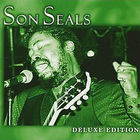
Deluxe Edition
- Year:
- 2002
- Tracks:
- 15
- Bitrate:
- 320 kbps
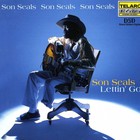
Lettin' Go
- Year:
- 2000
- Tracks:
- 14
- Bitrate:
- 192 kbps
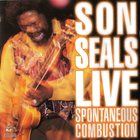
Live-Spontaneous Combustion
- Year:
- 1996
- Tracks:
- 12
- Bitrate:
- 320 kbps

Nothing But The Truth
- Year:
- 1994
- Tracks:
- 12
- Bitrate:
- 320 kbps
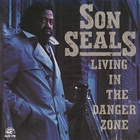
Living In The Danger Zone
- Year:
- 1991
- Tracks:
- 11
- Bitrate:
- 320 kbps
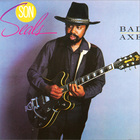
Bad Axe (Vinyl)
- Year:
- 1984
- Tracks:
- 10
- Bitrate:
- 320 kbps
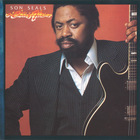
Chicago Fire (Vinyl)
- Year:
- 1980
- Tracks:
- 9
- Bitrate:
- 320 kbps

Live And Burning (Vinyl)
- Year:
- 1978
- Tracks:
- 9
- Bitrate:
- 320 kbps
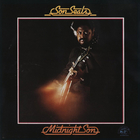
Midnight Son (Vinyl)
- Year:
- 1976
- Tracks:
- 9
- Bitrate:
- 320 kbps
 Buddy Guy
Buddy Guy  Hound Dog Taylor
Hound Dog Taylor  Magic Slim
Magic Slim  Otis Rush
Otis Rush  Johnny Copeland
Johnny Copeland  Koko Taylor
Koko Taylor  Lil' Ed & The Blues Imperials
Lil' Ed & The Blues Imperials  The Holmes Brothers
The Holmes Brothers